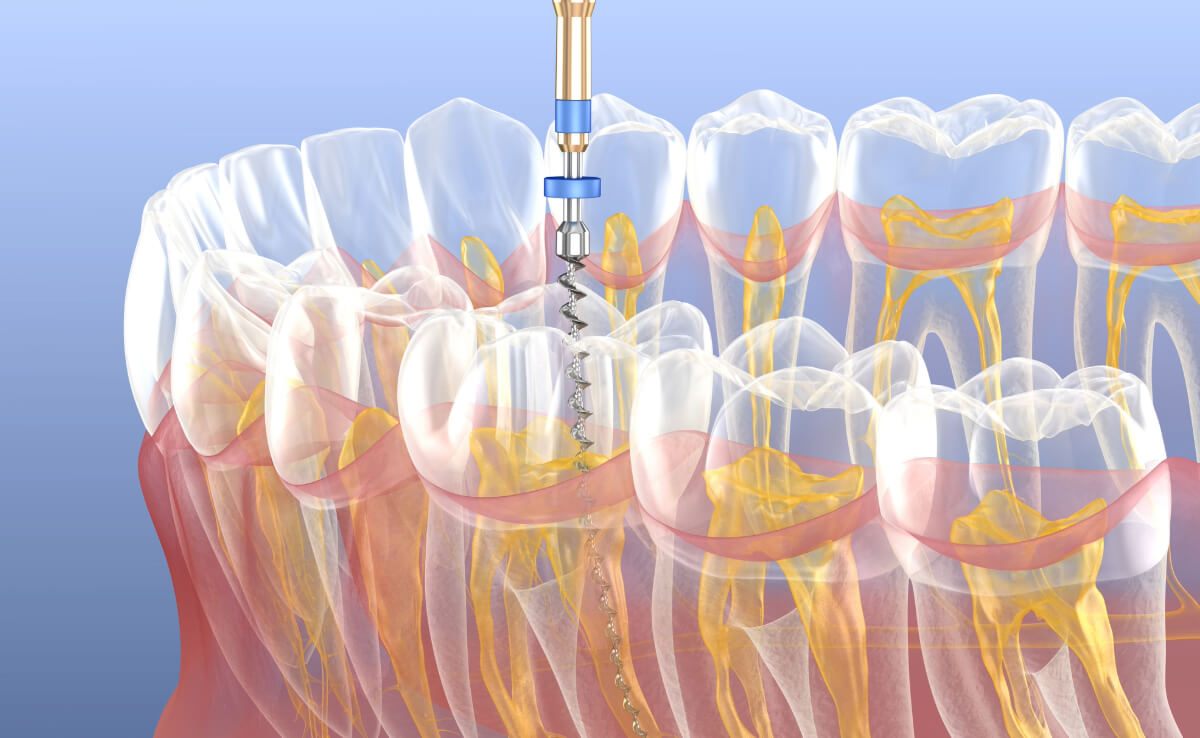Save Your Smile and Find Pain Relief with Root Canal Treatment
For most patients, the term “root canal” doesn’t bring pleasant feelings. However, over the years, there have been many advancements in the procedure that has made it much more comfortable than you would think. For those in the Kanata, Carp, Stittsville, and Richmond, Ontario areas, Dr. Alireza Farkhondeh (Dr. Far) and Dr. Wang, at The Hope Dental Care Centre can provide the best endodontic treatment, (root canal therapy).
Understanding Root Canal Treatment

The process is similar to a regular filling and is generally completed in one or two sessions, depending on your unique situation.
The pulp inside your tooth, which consists of blood vessels, nerves, and connective tissue, is responsible for the growth of the root during its development. But even after it is fully grown, the tooth can still survive without the pulp, as the surrounding tissue nourishes it. The affected area can be treated by performing a root canal treatment, relieving the pain.
Root canal treatments are much different than the old stories would have you believe. It is a relatively simple procedure during which the canal is carefully cleaned, disinfected, and then filled. This prevents further infection.
Not only can the process be potentially pain-free, but it is also very effective. After the treatment, you’ll return to eating, smiling, and chewing as usual. The success rate of root canal treatments is exceptionally high. This means that if you get one, you can be sure to get reliable and effective treatment.
How Would I Know If I Need a Root Canal?
Several symptoms and situations indicate the need for a root canal. Those experiencing a cracked tooth, either from genetics, an injury, a deep cavity, or problems related to a previous filling, will usually need this treatment when they notice extreme sensitivity in one or more teeth, such as cold and hot sensations.
Here is a list of symptoms that could indicate you need a root canal:
- Pimples forming on your gums
- Pain while biting or chewing
- A deep cracked or chipped tooth that exposes the pulp
- Lingering elevated sensitivity to cold or hot even after the cause had been removed
- Tender or swollen gums
- Darkening of gums or deep tooth decay
Experience Relief with Root Canal Therapy
Call (343) 803-6333 to find out how root canal therapy can resolve your ongoing dental issues and relieve pain.

Root canal therapy is a very common procedure. It has a reputation of being undesirable and painful. But when done properly it is actually painless. Every tooth in your mouth is composed of a crown and a root. When a cavity or bacteria penetrates the tooth, the root and its nerves become irritated. As a result, the bacteria within the pulp cavity needs to be removed and cleaned in order to restore the tooth to its healthy state. Following the procedure, the tooth is fragile and consequently is restored with the natural crown for a lifetime of durability. Root canals have a success rate of 95% or greater. Most root canal are diagnosed by patients’ sensitivities to a specific tooth. Be sure to consult your dentist any symptoms or discomfort occur.




